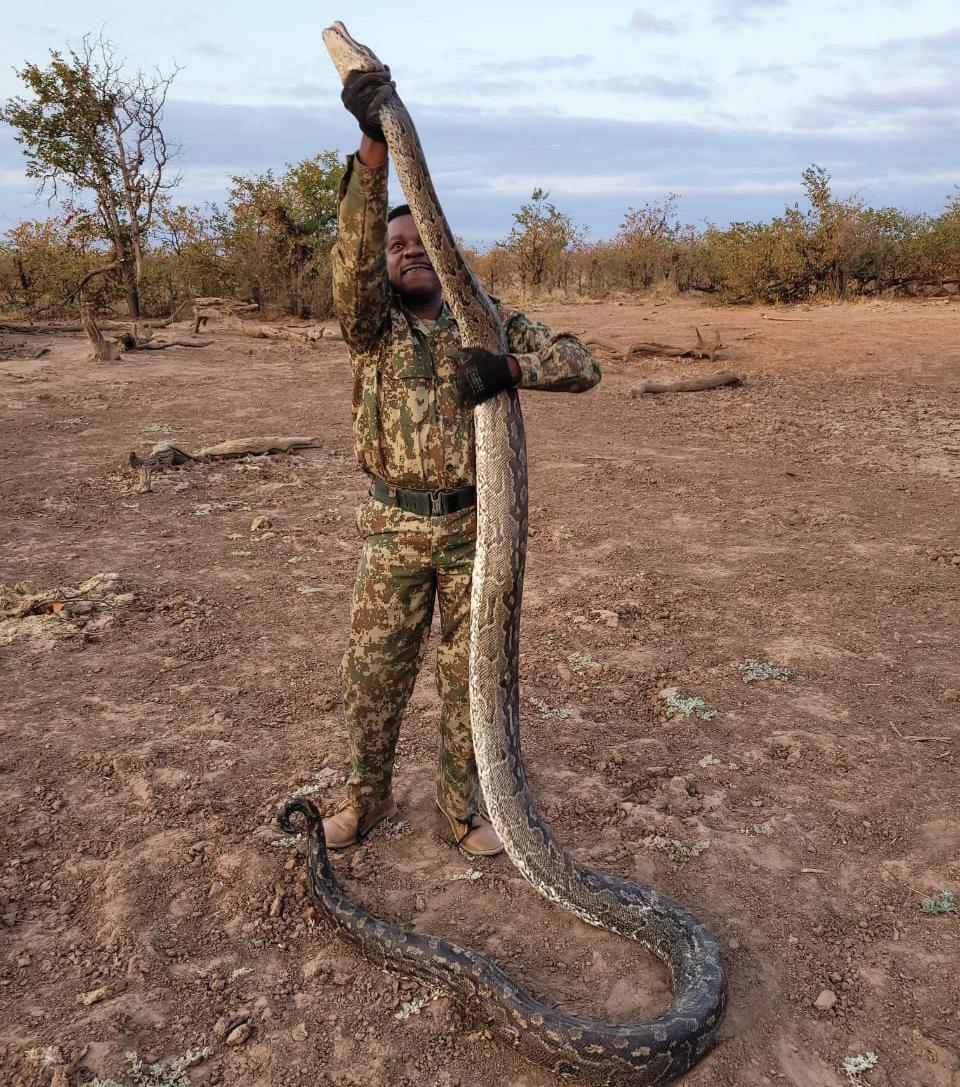
3 minute read
Heroic SANParks Ranger to the Rescue National Endangered Species Day – 20 May 2022
Mapungubwe Celebrates Africa Month with Fulufhelo Special School
By Mulovhedzi Lufuno and Ramotshela Karabo
Advertisement
Africa Month is an international celebration and is commemorated during the month of May by a number of African countries. The purpose of Africa Month is to celebrate African independence and unity among African countries.
Mapungubwe National Park and World Heritage Site celebrated this day with the objective of educating learners that being from Africa is the best thing that has ever happened to them. Mapungubwe Socio-Economic Transformation Division (SET) commemorated this day on 18 May 2022 with learners from Fulufhelo Special School. To celebrate this day learners and educators were dressed in different traditional attires known as Minwenda, Xibelani and Nceka. The traditional attires represent the culture and the rich diversity of the African continent. The learners also performed different traditional dances such as Malende, Tshigombela, Tshifasi, Xibelani, Muchongolo, Makhwaya and Ballroom dance. During the event African cuisine was served, including food such as Mopane worms, Tshidzimba (samp with beans), Bovhola (grinded nuts) and soft white and yellow pap.
Heroic SANParks Ranger to the Rescue
By Gabby Venter
A SANParks ranger from Mapungubwe National Park recently saved a 3 metre-long python trapped underneath a truck.
Innocent Lebepa, a Section Ranger at Mapungubwe said that a truck from one of the neighbouring farms stopped at the main gate and when the driver returned to the vehicle he heard a noise underneath the truck. “He called me to come assist when he saw the snake under the truck.”
“The python was at least 3 metres long and I suspect that it was a female,” said Innocent. “In these types of situations, you would normally use tongs but this python was too big for tongs so I had to use my hands.”

“It took me about 45 minutes to remove her safely from where she was trapped. It was a fight from both our sides and I think we were both exhausted
Innocent Lebepa, Section Ranger, Mapungubwe National Park used his own hands to remove a 3 metre python from underneath a truck
afterwards. Once I had rescued her from the truck, I relocated and released the python near a waterhole inside the park,” said Lebepa.
National Endangered Species Day – 20 May 2022
By Annie Makalane
Black Rhino, an endangered species
The National Endangered Species Day is celebrated globally every year in May. This year marked the 17th year of various wildlife conservation agencies celebrating their efforts to preserve the different types of endangered species internationally.
Endangered species are regarded as animals, birds, mammals or plants which are seriously at risk of extinction. Should nothing be done to conserve those, the chances of these species going extinct would be very high.
Legally protected species are those that are threatened due to activities that can be regulated by permits, such as hunting or trade.
World Wildlife Fund reports that few rhinos survive outside national parks and reserves due to persistent poaching and habitat loss. The three critically endangered species of rhinos are Black, Javan, and Sumatran.

So far, more than 142 000 species were assessed for the IUCN Red List. Most staff members would be more familiar with rhino, Cape vulture and the Knysna sea horse. Biodiversity Act (No. 10 of 2004) (NEMBA). These are nationally protected species that can only be owned, hunted, picked, traded, imported, exported, transported, bred or grown with a valid permit.
A list of NEMBA-protected species is available at www.speciestatus.sanbi.org
Ways of protecting the wildlife in your park or area: • Learn about the importance of protecting endangered species in your area. • Teach friends and family the importance of wildlife, birds, fish and plants in your area. • Visit a national park or wildlife area and keep in mind that all protected lands provide a place for wildlife, birds, fish and plants. • If living in a national park or close to a national park, ensure your home is wildlife-friendly. • Feed and lock pets indoors at night to protect them from attracting wildlife into your home. • Slow down and keep an eye on wildlife crossing paths when you drive in a national park. • Teach friends and family about recycling and using sustainable products. • Report any activity that does not protect wildlife, such as shooting, trapping or forcing an endangered animal into captivity.










